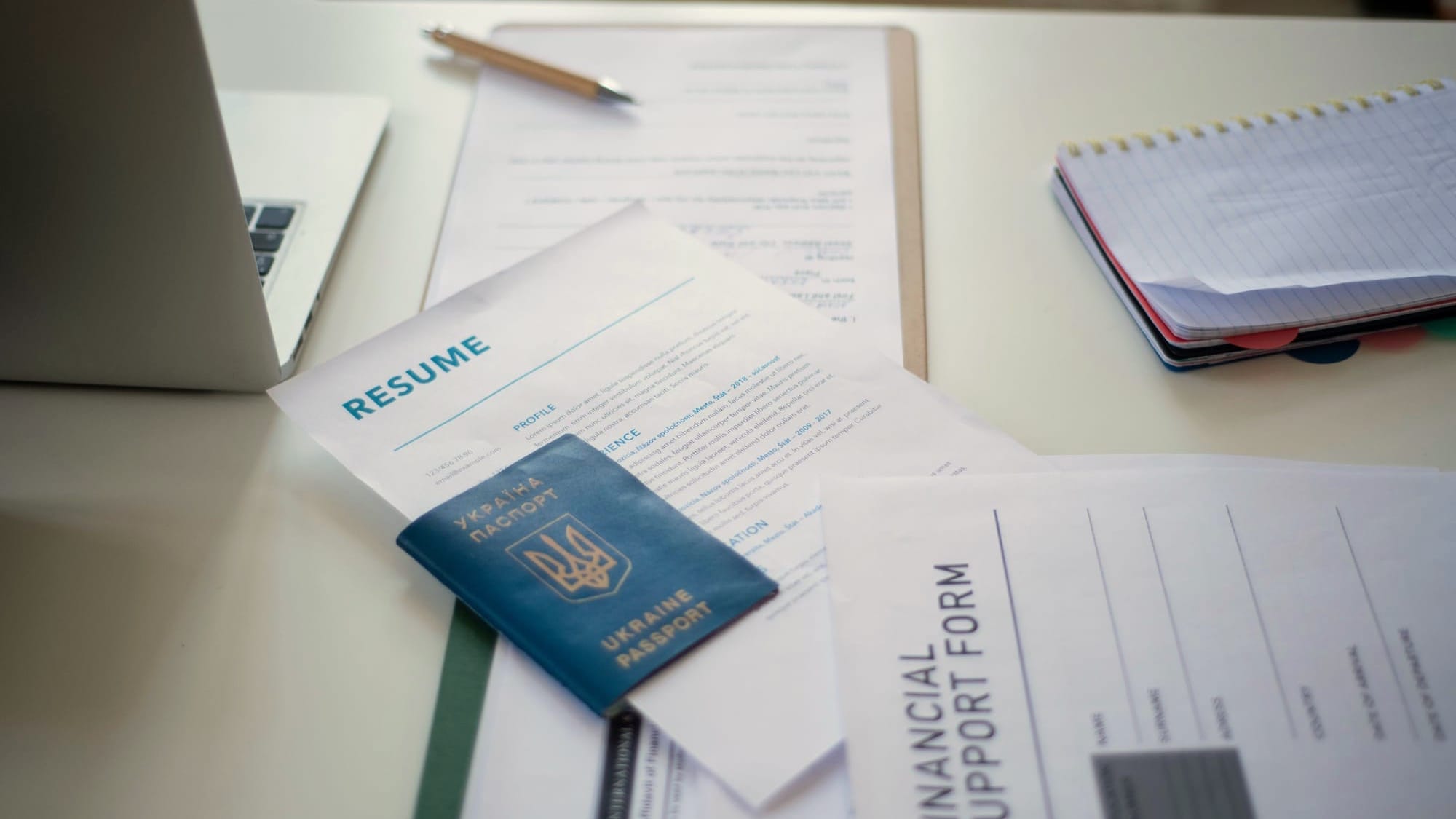Citizenship by Investment programs represent a sophisticated pathway in the global investment migration landscape, offering qualified investors and their families the opportunity to obtain second citizenship through strategic economic contributions.
These programs, first pioneered by St. Kitts and Nevis in 1984, have evolved into comprehensive frameworks that attract global investors seeking enhanced mobility, financial security, and family unity.
Overview of Citizenship by Investment (CBI) Programs
Modern CBI programs have transformed from simple investment-for-passport schemes into complex, well-regulated systems that prioritize due diligence and economic impact.
While traditional programs focused primarily on individual investors and immediate family members, several jurisdictions have recognized the importance of extended family inclusion, particularly siblings, in their citizenship offerings.
The investment options within these programs have diversified significantly, ranging from government fund contributions to real estate investments and business development projects.
This evolution reflects both the maturing market for investment migration and the increasing sophistication of investor requirements.
Importance of CBI Programs for Siblings
The inclusion of siblings in CBI applications addresses a fundamental market need, particularly resonating with families from regions where extended family bonds form the cornerstone of social and economic structures. This feature has become increasingly significant as global mobility patterns evolve and families seek comprehensive solutions for cross-border movement and settlement.
Sibling-inclusive programs offer unique advantages that extend beyond traditional family migration pathways. These benefits include:
- Preservation of family unity across generations
- Shared access to international business and investment opportunities
- Collective participation in global education and career advancement
- Enhanced family security through diversified citizenship options
- Streamlined migration planning for extended family units
The ability to include siblings in citizenship applications has proven especially valuable for families from regions experiencing political uncertainty or economic volatility, providing a unified pathway to stable jurisdictions.
Objectives of the Guide
This comprehensive guide serves as an authoritative resource for investors and their families navigating the complex landscape of sibling-inclusive CBI programs. Our objectives include:
- Providing detailed analysis of current sibling-inclusive CBI programs
- Offering comparative insights into investment requirements and program benefits
- Examining eligibility criteria and application procedures
- Exploring strategic considerations for successful applications
- Addressing common challenges and mitigation strategies
Through these objectives, we aim to equip families with the knowledge needed to make informed decisions about citizenship investment opportunities that accommodate sibling inclusion.

Criteria for Evaluating CBI Programs for Siblings
Family Inclusion Policies
Understanding family inclusion policies requires careful examination of each jurisdiction's specific requirements and restrictions. Key considerations include:
Age Restrictions
- Programs vary significantly in years of age limits for eligible siblings
- Some jurisdictions maintain no age restrictions
- Others impose specific age caps, typically ranging from 18 to 30 years of age
Marital Status Requirements:
- Most programs require siblings to be unmarried
- Some jurisdictions extend restrictions to childless status
- Relationships must typically be proven through official documentation
Dependency Criteria:
- Certain programs require proof of financial dependency
- Others maintain more flexible definitions of family relationships
- Documentation requirements vary by jurisdiction
Investment Requirements
Investment thresholds and options demonstrate significant variation across programs, reflecting each jurisdiction's economic objectives and development priorities. Common investment pathways include:
Government Contributions:
- Non-refundable donations to national development funds
- Starting thresholds typically range from $100,000 to $200,000
- Additional fees apply for sibling inclusion
Real Estate Investment:
- Purchase of approved properties or development projects
- Minimum investments ranging from $200,000 to $400,000
- Holding period requirements from 3 to 7 years
Business Investment:
- Enterprise projects and job creation initiatives
- Investment thresholds varying by sector and location
- Additional economic impact requirements
Processing Times and Efficiency
Timeline considerations significantly impact program selection, particularly for families seeking coordinated citizenship acquisition. Typical processing phases include:
Pre-Application Phase (1-2 months):
- Document gathering and verification
- Investment selection and preliminary approval
- Initial due diligence checks
Application Processing (3-12 months):
- Detailed documentation review
- Enhanced due diligence procedures
- Investment verification and approval
Post-Approval Phase (1-2 months):
- Oath ceremonies and naturalization procedures
- Passport issuance and registration
- Investment completion and verification
Cost and Fee Structures
Beyond core investment requirements, comprehensive cost analysis must account for various additional expenses:
Application Fees:
- Individual processing fees for each sibling
- Government administrative charges
- Professional service fees
Due Diligence Costs:
- Background check fees
- Document verification expenses
- Legal certification requirements
Ongoing Expenses:
- Investment maintenance costs
- Property management fees (if applicable)
- Renewal and maintenance charges
Benefits and Advantages
Program benefits encompass a broad spectrum of advantages for sibling applicants:
Global Mobility:
- Visa-free travel to numerous destinations
- Simplified business travel arrangements
- Enhanced emergency travel options
Economic Opportunities:
- Access to international banking systems
- Tax planning advantages
- Business development opportunities
Lifestyle Benefits:
- Educational access in multiple jurisdictions
- Healthcare system participation
- Property ownership rights
Legal and Regulatory Considerations
Robust regulatory frameworks govern all aspects of CBI programs, ensuring program integrity and participant compliance:
Due Diligence Standards:
- Multi-layered verification procedures
- Source of funds validation
- Background check requirements
Documentation Requirements:
- Standardized application procedures
- Verification and authentication protocols
- Ongoing compliance obligations
Program Integrity Measures:
- Regular audits and reviews
- Investment monitoring systems
- Reporting requirements and obligations
Top Citizenship by Investment Programs

St. Kitts and Nevis Citizenship by Investment Program
Program Overview
St. Kitts and Nevis pioneered the concept of citizenship by investment in 1984, establishing what would become a model for investment migration programs worldwide. As one of the most established programs in the Caribbean, it has maintained a strong reputation for reliability and efficiency. The program underwent significant changes in 2023, particularly affecting family inclusion policies.
Eligibility Criteria for Siblings
Following the 2023 amendments to the program regulations, St. Kitts and Nevis no longer accepts siblings as eligible dependents in citizenship applications. This change represents a significant shift from previous policies, which had allowed unmarried siblings under 30 years old to be included in family applications. Potential applicants who wish to include siblings should consider alternative programs that maintain sibling-inclusive policies.
Investment Options
The program offers diverse investment pathways, with options similar to those found in Greece and Spain:
Sustainable Growth Fund (SGF) Contribution:
- Single Applicant: $150,000
- Main Applicant + Spouse: $175,000
- Family of Four: $195,000
Real Estate Investment:
- Minimum Investment: $200,000 (resaleable after 7 years)
- Premium Option: $400,000 (resaleable after 5 years)
- Additional Government Fees Apply
Benefits for Siblings
While siblings can no longer be included in new applications, the program benefits for eligible family members include:
- Visa-free travel to over 150 countries
- No physical residency requirements
- Lifetime citizenship with right of descent
- Full residence rights in St. Kitts and Nevis
- Access to tax-friendly business environment
Dominica Citizenship by Investment Program
Program Overview
Dominica's Citizenship by Investment Program, established in 1993, has earned recognition for its affordability and straightforward process. The program places strong emphasis on family unity and economic development, though recent amendments have affected sibling inclusion policies.
Eligibility Criteria for Siblings
As of September 2022, Dominica's program no longer accepts siblings as eligible dependents under any circumstances. This change applies to siblings of both the main applicant and spouse, representing a shift from previous policies that had allowed sibling inclusion under certain conditions.
Investment Options
The program maintains competitive investment thresholds:
Economic Diversification Fund (EDF):
- Single Applicant: $100,000
- Main Applicant + Spouse: $150,000
- Family of Four: $175,000
Real Estate Investment:
- Minimum Investment: $200,000
- Government Fees: Additional charges apply
- Holding Period: 3-5 years depending on future resale options
Benefits for Siblings
While sibling inclusion is no longer available, family benefits for eligible dependents include:
- Visa-free access to over 140 countries
- Minimal physical presence requirements
- Full residence rights
- Access to Commonwealth education benefits
- Tax-efficient jurisdiction
Antigua and Barbuda Citizenship by Investment Program
Program Overview
Antigua and Barbuda's Citizenship by Investment Program, launched in 2013, stands out for its particularly inclusive family policies and competitive pricing structure. The program has maintained its commitment to accommodating extended family members, including siblings, making it an attractive option for families seeking comprehensive citizenship solutions.
Eligibility Criteria for Siblings
Antigua and Barbuda offers one of the most flexible sibling inclusion policies among all CBI programs:
Eligibility Requirements:
- Siblings of both main applicant and spouse can be included
- No upper age limit for siblings
- Must be unmarried
- Must be fully supported by the main applicant
- Requires proof of relationship through birth certificates or legal documentation
Documentation Requirements:
- Birth certificates showing common parent(s)
- Proof of unmarried status
- Police clearance certificates
- Medical examination reports
- Passport copies and photos
Investment Options
The program offers multiple investment pathways:
National Development Fund (NDF) Contribution:
- Single Applicant: $100,000
- Family Application (including siblings): $125,000 plus additional fees per dependent
- Processing and Due Diligence Fees: Additional charges apply
Real Estate Investment:
- Minimum Investment: $200,000
- Must be in approved projects
- Holding Period: 5 years
- Additional Government Processing Fees Apply
Business Investment:
- Single Investment: $1,500,000
- Joint Investment Option: $5,000,000 (minimum $400,000 per person)
- Must create jobs and contribute to local economy
University of the West Indies Fund:
- Families of 6 or more: $150,000
- Includes one year of tuition at UWI
- Additional benefits for education
Benefits for Siblings
Siblings included in successful applications enjoy comprehensive benefits:
Travel Benefits:
- Visa-free access to over 150 countries including UK, Schengen Area
- Right to live and work in all CARICOM member states
- Streamlined travel within the Caribbean region
Economic Advantages:
- No personal income tax
- No wealth tax
- No inheritance tax
- Access to regional business opportunities
- Banking privacy and asset protection
Lifestyle Benefits:
- Full residence rights
- Access to quality healthcare and education
- Right to work without additional permits
- Opportunities to establish businesses
- Access to social services
Additional Advantages:
- Fast processing time (3-6 months)
- No interview requirement
- No physical presence requirement
- Lifetime citizenship
- Right to dual citizenship
- Citizenship by descent for future generations
Portugal Golden Visa Program

Program Overview
The Portugal Golden Visa Program, launched in 2012, represents one of Europe's most popular residency-by-investment schemes. This program offers a path to permanent residency and eventual citizenship through various investment options.
While not strictly a citizenship by investment program, it provides a structured route to European citizenship after five years.
Eligibility Criteria for Siblings
The Portugal Golden Visa Program does not currently include provisions for sibling inclusion. Family applications are limited to:
- Spouse or legal partner
- Children under 18
- Dependent children under 26 if single and studying
- Parents of the main applicant or spouse if the parents over 65 or dependent
- Dependent parents-in-law over 65
Investment Options
The program offers diverse investment pathways:
Capital Investment:
- €1.5 million bank transfer
- €500,000 in research activities
- €500,000 in national cultural heritage
Business Investment:
- Creation of 10 jobs
- €500,000 in established Portuguese companies
Real estate used to be a possible option for this program, but it has been phased out.
Benefits for Program Participants
While siblings cannot be included, the program offers significant advantages:
- Visa-free travel within Schengen Area
- Path to EU citizenship after 5 years
- Minimal stay requirements (7 days first year, 14 days subsequent years)
- Access to Portuguese healthcare and education
- Family relocation opportunities
Malta Individual Investor Programme (IIP)

Program Overview
Malta's citizenship program, now operating under revised regulations, is one of the most prestigious citizenship by investment options worldwide, offering direct access to European Union citizenship.
The program maintains strict due diligence standards and requires a genuine link to Malta through residence to maintain Malta citizenship.
Eligibility Criteria for Siblings
Malta's program does not include provisions for sibling inclusion. Eligible dependents are limited to:
- Spouse or life partner
- Children under 18
- Unmarried dependent children 18-29
- Parents over 55
- Grandparents over 55
Investment Options
The program requires a combination of contributions:
Mandatory Contributions:
- €600,000 contribution (€750,000 for fast-track)
- €700,000 real estate purchase or €16,000 annual rent
- €10,000 donation to registered NGO
Additional Requirements:
- Minimum 36 months residency (12 months for fast-track)
- Clean criminal record
- Comprehensive due diligence checks
Benefits for Program Participants
The program offers substantial advantages:
- EU citizenship
- Visa-free access to 184 countries
- Right to live and work across the EU
- Access to EU healthcare and education
- Tax planning opportunities
Comparative Analysis of Top CBI Programs
Investment Thresholds
Comparison of Minimum Investments
The quest for a second passport through investment varies significantly across jurisdictions. Leading programs include:
Caribbean Island Options:
- Saint Lucia (St. Lucia) citizenship through a $100,000 direct investment in their Economic Fund
- Antigua and Barbuda's National Development Fund starting at $100,000
- Grenada's transformation fund at $150,000
Pacific and European Options:
- Vanuatu's citizenship program requiring $130,000
- Maltese citizenship demanding €600,000 plus property
- Turkish citizenship through $400,000 real estate investment
Real Estate Investment Routes:
- Caribbean real estate projects: $200,000 - $400,000
- European government-approved developments: €280,000 - €700,000
Processing Times
Efficiency and Approval Rates
Processing times for the best citizenship programs vary by region:
Quick Processing Nations:
- Vanuatu: 2-3 months to citizenship
- St. Lucia: 3-4 months standard processing
- Turkey: 4-6 months average timeline
Extended Timeline Programs:
- Canada investment immigration: 12-36 months
- USA EB-5 program: 24-36 months
- European programs: 6-24 months varying by country
Success Rates:
- Caribbean programs maintain 90-95% approval
- Pacific programs show 85-90% success rates
- European programs average 75-85% approval
Family Inclusion Policies
Inclusion of Siblings and Extended Family
Family inclusion policies vary significantly across jurisdictions:
Caribbean Excellence:
- Antigua & Barbuda: Most inclusive for extended family
- St. Lucia citizenship: Siblings under 18 accepted
- Grenada: Adult sibling inclusion with conditions
Global Alternatives:
- Vanuatu: Limited to nuclear family
- Turkish program: Immediate family focus
- Canada: Family-friendly but restricted definitions
Benefits and Advantages
Travel Freedom and Visa-Free Access
Second passport benefits vary significantly by program:
Global Access:
- Caribbean passport holders: 140-160 countries
- Vanuatu citizenship: 130+ countries
- Turkish passport: 110+ countries with growing access
Strategic Advantages:
- USA visa-waiver access through select programs
- Canada visa-free travel through Caribbean options
- Russia-friendly jurisdictions available
- Enhanced China access through specific programs
Tax Benefits and Financial Advantages
Programs offer distinct financial benefits:
Caribbean Advantages:
- Zero worldwide income tax
- No wealth tax
- Tax neutrality for foreign investors
- Business privacy protections
Global Considerations:
- Direct investment benefits in select jurisdictions
- USA tax implications for specific programs
- Canada-compatible tax structures
- International banking access
Cost and Fee Structures
Application Fees and Due Diligence Costs
Complete cost analysis across best citizenship options:
Due Diligence:
- Caribbean jurisdictions: $7,500 - $15,000 per adult
- Vanuatu program: $5,000 - $10,000 per application
- European programs: €15,000 - €40,000 per case
Government Processing:
- St. Lucia and Caribbean options: $25,000 - $50,000
- Vanuatu citizenship: $15,000 - $30,000
- European residency and citizenship: €50,000 - €100,000
Professional Services:
- Caribbean processing: $20,000 - $40,000
- Pacific region applications: $15,000 - $30,000
- European citizenship support: €40,000 - €100,000
Application Process for Siblings
Step-by-Step Guide
Initial Consultation and Assessment
The journey toward citizenship begins with a comprehensive consultation and assessment phase. During these initial meetings, authorized agents work closely with families to understand their unique circumstances and objectives, and where you have found an opportunity that matches your goals. This evaluation focuses on three critical areas:
- Program Selection: Identifying the most suitable citizenship program based on family composition and investment preferences
- Timeline Planning: Developing a realistic schedule that accounts for document preparation and processing times
- Investment Strategy: Evaluating investment options and financial requirements for the chosen program
Documentation Preparation
Personal Identification Documents
Each sibling included in the application must provide comprehensive identification documentation, including any existing residence permit documentation. The preparation process requires careful attention to detail, as documents must meet strict authenticity and currency requirements. Essential documents include valid passports, government-issued identification, and professional credentials where applicable.
Proof of Relationship (Siblings)
Establishing sibling relationships requires clear documentation of family connections. The primary document is typically the long-form birth certificate showing common parentage. For complex family structures, such as adopted siblings or blended families, additional documentation may be necessary to establish legal family bonds, including:
- Adoption papers and court orders
- Legal name change documentation
- Family registry certificates
- Parental attestations when required by the program
Financial Statements and Proof of Funds
Financial documentation serves to demonstrate both investment capacity and source of funds legitimacy. Applicants must provide records that trace their wealth's origin and development through legitimate means. This typically involves a comprehensive financial history covering:
Bank statements spanning 12-24 months, investment portfolios, and business ownership documentation demonstrate the applicant's capacity to make the required investment while establishing the legitimacy of funds through clear transaction histories and source verification.
Submission of Application
The submission phase requires careful coordination between applicants, their authorized agents, and government authorities. A well-prepared application package presents a clear narrative about the family's qualifications for citizenship, supported by properly organized and authenticated documentation. Professional agents manage this process to ensure compliance with program requirements and maximize approval chances.
Payment of Fees
The payment structure follows a logical progression through the application process:
First Stage:
- Due diligence and processing fees
- Professional service retainers
Upon Approval:
- Government contribution or investment amount
- Final processing charges
- Passport and certificate issuance fees
Approval and Issuance of Citizenship Certificates
Following successful application review, the process moves through several distinct phases:
- Receipt of approval in principle
- Completion of required investments
- Taking the oath of allegiance
- Issuance of citizenship certificates
- Application for new passports
Required Documentation
Birth Certificates Showing Sibling Relationship
Birth certificates must meet specific criteria to effectively establish sibling relationships. Modern citizenship programs require detailed certificates that include:
Complete parental information, place and date of birth, and official registration details must be clearly visible and properly authenticated through apostille or legalization procedures as required by the receiving country.
Criminal Background Checks
Security clearance requirements reflect each program's commitment to maintaining high standards of integrity. Background checks typically encompass:
A comprehensive review of an applicant's history in all countries of significant residence, including police certificates, professional conduct reviews, and international security screenings ensures program integrity and compliance with security requirements.
Health Certificates
Medical documentation combines public health compliance with practical assessment of applicants' health status. Requirements vary by jurisdiction but generally include:
- Standard medical examination results
- Vaccination records
- Specific health screenings as required by the program
Legal and Regulatory Considerations
Compliance with Local and International Laws
Applications must navigate a complex regulatory landscape that includes anti-money laundering provisions, sanctions compliance, and tax reporting obligations. This framework continues to evolve, requiring ongoing attention to changing requirements and standards.
Role of Authorized Agents and Legal Advisors
Professional guidance throughout the citizenship application process comes from a coordinated team of specialists:
Licensed citizenship consultants coordinate with immigration attorneys, investment advisors, and tax specialists to ensure comprehensive application support. These professionals handle application preparation, investment guidance, compliance verification, and post-citizenship support, ensuring a smooth and successful citizenship acquisition process.
Benefits of Obtaining Citizenship as Siblings
Shared Benefits for Siblings
Joint Investment Opportunities
Siblings who obtain citizenship together gain unique advantages in business and investment. They can pool resources to meet investment thresholds, participate in larger real estate developments, or establish family businesses in their new jurisdiction. The ability to combine capital and expertise often leads to more substantial investment opportunities than would be possible individually. Many jurisdictions offer preferential treatment to citizen investors, particularly in sectors like real estate development, tourism, and financial services.
Family Unity and Support
Shared citizenship provides a foundation for long-term family cohesion. Siblings can maintain close family ties while building their lives in the new country, creating a support network that spans generations. This unified approach to citizenship ensures that extended families can stay together, share resources, and support each other through life transitions. It also facilitates easier family reunions, shared property ownership, and collective decision-making about family investments and future planning.
Travel Advantages

Visa-Free Access to Multiple Countries
Second citizenship significantly expands travel opportunities for sibling groups. Caribbean passports typically offer visa-free access to 140-160 countries, including major business and leisure destinations. This enhanced mobility allows siblings to conduct international business, pursue educational opportunities, or simply explore new destinations without the burden of extensive visa applications. The ability to travel freely is particularly valuable for families with business interests across multiple regions.
Ease of Travel within Regional Areas
Regional integration agreements provide additional travel benefits, particularly in Caribbean countries where citizenship programs offer freedom of movement within member states. This regional mobility enables siblings to explore business opportunities, access services, and maintain connections across multiple jurisdictions.
Financial and Tax Benefits
Tax Optimization Strategies
Second citizenship opens doors to sophisticated tax planning opportunities. Many citizenship-by-investment jurisdictions offer favorable tax regimes, including zero or low taxes on worldwide income, wealth, inheritance, and capital gains.
Siblings can structure their international affairs to optimize tax efficiency while maintaining compliance with relevant regulations. This can be particularly advantageous for families with diverse international business interests or investment portfolios.
Investment Diversification
Multiple citizenship provides platforms for international investment diversification. Siblings can access different markets, currencies, and investment opportunities while maintaining the security of their original citizenship.
This geographical diversification helps protect family wealth against political, economic, and currency risks. Investment options might include real estate, business ventures, financial markets, or government bonds across multiple jurisdictions.
Quality of Life Improvements
Access to Better Healthcare and Education
Second citizenship often provides access to superior healthcare systems and educational institutions. Siblings and their families can benefit from world-class medical facilities, specialized treatments, and preventive care programs.
Educational advantages include access to prestigious schools and universities, often at domestic rather than international student rates. This benefit extends to future generations, ensuring long-term family access to quality education and healthcare services.
Enhanced Safety and Security
Additional citizenship provides a valuable safety net for sibling groups and their families. In times of political, economic, or social instability in their home country, having an alternative residence and citizenship option ensures family security.
This includes access to stable banking systems, secure property rights, and strong legal frameworks. The ability to relocate quickly if necessary provides peace of mind and protection against unforeseen circumstances in any single jurisdiction.
Challenges and Considerations for Siblings
Legal Restrictions and Requirements
Age and Health Requirements
Sibling inclusion in citizenship programs comes with specific age restrictions that vary by jurisdiction. Antigua and Barbuda's program stands out for accepting siblings of any age, while other programs impose strict age limits.
Health requirements can also present challenges, particularly for older siblings or those with pre-existing conditions. Programs typically require comprehensive medical examinations, and certain health conditions may affect eligibility or require additional documentation and insurance coverage.
Financial Eligibility
Meeting financial eligibility criteria requires careful planning, especially when including multiple siblings. Beyond the core investment amount, applicants must demonstrate sufficient liquid assets to support all included family members.
This often means proving sustainable income sources and maintaining substantial reserves beyond the initial investment.
The source of funds documentation becomes more complex when multiple siblings contribute to the investment, requiring clear proof of each contributor's financial capacity and source of wealth.
Financial Commitments and Risks
Initial and Ongoing Investment Costs
The financial commitment extends well beyond the headline investment amounts. Initial costs include government fees, due diligence charges, and legal expenses for each sibling included in the application.
Real estate investments may require additional funds for maintenance, property taxes, and insurance. Some programs also mandate periodic renewal fees or continued financial commitments to maintain citizenship status.
Market and Investment Risks
Investment choices carry varying levels of risk, particularly in real estate options. Property markets in citizenship-by-investment jurisdictions can be volatile, affecting potential returns and exit opportunities.
Government bond investments, while generally safer, may offer lower returns. Business investments require thorough market analysis and ongoing management commitment. Currency fluctuations between the investment currency and siblings' home currencies can also impact the overall cost and return on investment.
Long-Term Obligations
Maintaining Investment
Many programs require investors to maintain their qualifying investments for specific periods, typically ranging from 3 to 7 years. Real estate investments often come with holding period requirements and restrictions on resale options.
Some programs mandate regular reporting on investment maintenance or business performance. Failure to maintain investments according to program requirements can jeopardize citizenship status for all included family members.
Residency Requirements
While most Caribbean citizenship programs have minimal physical presence requirements, some jurisdictions mandate periodic visits or establish residency requirements for maintaining citizenship benefits. European programs typically have more stringent residency obligations as part of their naturalisation process.
Strategic Tips for Sibling Applicants
Selecting the Right CBI Program
Aligning Investment Goals
Success in citizenship by investment begins with choosing a program that aligns with both family objectives and investment goals. For siblings, this means evaluating not just the minimum investment thresholds but also the potential for long-term value creation.
Consider both individual and collective investment capacities when selecting a program, and assess how different investment options might serve multiple family members' interests. For example, a real estate investment might provide both a qualifying investment and a shared family vacation property.
Evaluating Program Benefits and Restrictions
Program evaluation should extend beyond basic eligibility criteria to consider practical implications for all siblings. Pay particular attention to programs that offer unique advantages, such as Grenada citizenship with its E-2 visa treaty with the United States or flexible age requirements for siblings.
Maximizing Investment Returns
Choosing High-Growth Investment Opportunities
When selecting investment vehicles, look beyond minimum program requirements to identify opportunities for genuine value appreciation. In real estate investments, consider emerging markets with strong growth potential, such as developing tourism zones or urban renewal areas.
For business investments, evaluate sectors with government support and favorable market conditions. The goal is to meet citizenship requirements while positioning the investment for meaningful returns.
Diversifying Investment Portfolios
Strategic diversification can help balance risk and opportunity across the family group. Consider splitting investments across different asset classes or locations when program rules permit.
Some siblings might focus on real estate while others pursue business investments, creating a balanced portfolio that serves both citizenship requirements and family wealth goals.
Remember that diversification strategies should account for each sibling's risk tolerance and investment expertise.
Navigating the Application Process Efficiently
Working with Experienced Advisors
Select advisors with a proven track record in sibling-inclusive applications. The right professional team should include:
- Legal experts familiar with family-based CBI applications
- Financial advisors who understand international investment structures
- Local agents with strong government relationships
- Tax specialists who can optimize family wealth planning
Your advisory team should demonstrate experience in coordinating complex family applications and managing multi-generational wealth transfer strategies.
Ensuring Complete and Accurate Documentation
Document preparation requires meticulous attention to detail and coordination among siblings. Create a centralized system for tracking document requirements, deadlines, and submissions. Consider establishing a shared digital platform for document storage and version control. Maintain clear communication channels between family members and advisors to ensure consistent information and timely responses to requests.
Planning for Long-Term Residency and Citizenship
Meeting Residency Requirements
For programs with residency obligations, develop a coordinated plan for meeting these requirements across the sibling group. Consider:
- Creating a rotation schedule for maintaining physical presence
- Establishing local business interests that justify regular visits
- Planning family gatherings that coincide with residency requirements
- Developing relationships with local communities and institutions
This strategic approach helps ensure all siblings can maintain their citizenship status while minimizing disruption to their primary activities.
Preparing for Citizenship Applications and Renewals
Long-term citizenship planning should address both initial acquisition and ongoing maintenance. Develop a systematic approach to:
- Tracking passport expiration dates and renewal requirements
- Monitoring changes in program rules and requirements
- Maintaining investment compliance documentation
- Building relationships with local authorities and institutions
- Planning for next-generation citizenship applications
Create a family governance structure that clearly assigns responsibilities for maintaining citizenship status and managing shared investments. This might include regular family meetings, professional reviews of investment performance, and updates to long-term strategy as circumstances change.
Legal and Regulatory Framework
Governing Laws and Regulations of CBI Programs
Citizenship by Investment programs operate under comprehensive legal frameworks established by their respective jurisdictions. Each country maintains specific legislation that outlines program requirements, investment criteria, and application procedures. These laws are regularly updated to reflect changing international standards and economic conditions. For instance, Antigua and Barbuda's Citizenship by Investment Act establishes clear guidelines for sibling inclusion, while recent amendments to St. Kitts and Nevis's legislation have modified family eligibility criteria.
Compliance and Due Diligence Measures
Modern CBI programs have transformed from simple investment-for-passport schemes into complex, well-regulated systems that prioritize due diligence and economic impact. While traditional programs focused primarily on high-net-worth individuals and immediate family members, several jurisdictions have recognized the importance of extended family inclusion, particularly siblings, in their citizenship offerings.
Role of Authorized Agents and Legal Advisors
Successful navigation of CBI programs requires collaboration with properly licensed and authorized professionals. These experts serve as essential intermediaries between applicants and government authorities, ensuring applications meet all technical and legal requirements. The role of authorized agents extends beyond simple document preparation to include:
Professional advisors must maintain current knowledge of program requirements and regulatory changes while ensuring strict client confidentiality and ethical standards in all dealings.
Understanding Dual Citizenship Rules

Home Country's Stance on Dual Citizenship
The implications of acquiring second citizenship vary significantly based on an applicant's country of origin. Some nations freely permit dual citizenship, while others impose restrictions or require formal permission. Key considerations include:
- Constitutional provisions regarding citizenship retention
- Requirements for notification or permission
- Potential impacts on existing rights and obligations
- Tax implications and reporting requirements
Careful analysis of home country policies helps prevent unintended consequences and ensures compliance with all relevant regulations.
Host Country's Dual Citizenship Policies
CBI jurisdictions maintain varying policies regarding dual citizenship and its implications.
Most Caribbean programs explicitly permit multiple citizenships, while some European programs may impose additional requirements. Understanding these policies is crucial for:
- Meeting ongoing obligations to maintain citizenship status
- Complying with reporting requirements
- Managing potential conflicts between jurisdictions
- Planning for future generations' citizenship options
Long-term success requires careful attention to both current requirements and potential policy changes that might affect citizenship status.
Contact CitizenX if you have any questions about CBI programs around the world for you and your siblings or dependent family.




